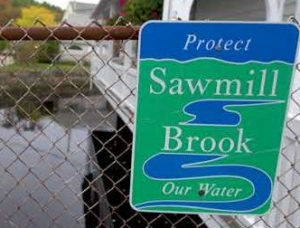2020 Visual Survey – Sawmill Brook, Manchester, MA
 Learn about Saw Mill Brook in the Town of Manchester-by-the-Sea, MA, narrated by Michael Carvalho. This short film on Sawmill Brook in Manchester by the Sea is the result of the collaborative efforts of the MBTS Stream Team, Salem Sound Coastwatch, Manchester-Essex Conservation Trust and our friends and partners.
Learn about Saw Mill Brook in the Town of Manchester-by-the-Sea, MA, narrated by Michael Carvalho. This short film on Sawmill Brook in Manchester by the Sea is the result of the collaborative efforts of the MBTS Stream Team, Salem Sound Coastwatch, Manchester-Essex Conservation Trust and our friends and partners.
2020 Michael Carvalho Becomes MECT Board of Trustee Member
 Manchester Essex Conservation Trust is excited to announce its new Trustee Michael P. Carvalho who said, “I am very proud to be a Trustee of this great organization and I am committed to advancing the mission of this remarkable Community.”
Manchester Essex Conservation Trust is excited to announce its new Trustee Michael P. Carvalho who said, “I am very proud to be a Trustee of this great organization and I am committed to advancing the mission of this remarkable Community.”
In August, Michael Carvalho narrated a short film on Sawmill Brook in Manchester-by-the-Sea, a collaboration of work performed by members of the MBTS Stream Team, Salem Sound Coastwatch, Manchester-Essex Conservation Trust and our friends and partners.
Michael Carvalho is president of Carvalho & Associates, P.C. with offices in Boston, MA and Atlanta, GA. He specializes in environmental law, including litigation, regulatory and transactional matters. He can be reached at (678) 354-0066.
METRO ATLANTA OFFICE
707 Whitlock Ave, SW | Suite E-19 | Marietta, GA 30064
BOSTON COASTAL OFFICE
Post Office Box 1584 | Manchester, MA 01944
Legal Notice | Contact Us | Privacy Policy
© 2024 All Rights Reserved on original work.
